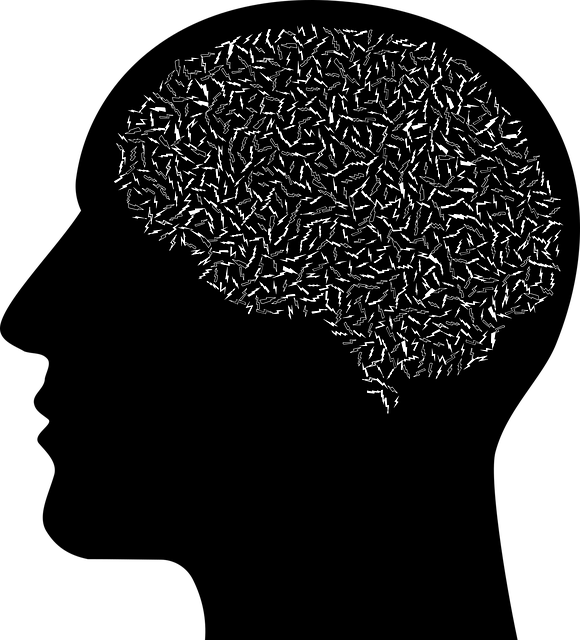Mental illness diagnoses in Spanish-speaking communities face challenges due to language barriers and culturally insensitive tools, leading to misdiagnosis and delayed treatment. Existing criteria, developed primarily from Western populations, may not accurately reflect diverse cultural mental health presentations. Lakewood Spanish Speaking Therapy offers tailored services to bridge these gaps, ensuring accurate diagnoses and improving access to appropriate care for non-English speaking individuals. Education and culturally competent practices are vital to combat stigma and enhance diagnosis accuracy, resulting in better treatment outcomes for all patients.
Mental illness diagnosis accuracy is a critical aspect of patient care, yet it remains a challenging area. This article explores efforts to improve diagnosis accuracy, focusing on common challenges, the impact on treatment outcomes, and innovative solutions. We delve into the role of language accessibility through Lakewood Spanish Speaking Therapy, highlighting its significance for linguistically diverse communities. Additionally, we discuss cultural competence training for therapists and evidence-based assessment tools. Community engagement and advocacy are also crucial, emphasizing mental health education and policy changes to ensure better diagnosis practices.
- The Current State of Mental Illness Diagnosis Accuracy
- – Addressing common challenges and misconceptions in diagnosis
- – Impact on treatment outcomes and patient well-being
- Lakewood Spanish Speaking Therapy: A Cultural Bridge
The Current State of Mental Illness Diagnosis Accuracy

The accuracy of mental illness diagnoses has been a topic of growing concern within the healthcare community. Despite significant advancements in our understanding of mental health conditions, misdiagnosis remains prevalent, particularly for individuals from diverse cultural backgrounds, such as Lakewood’s Spanish-speaking communities. This is often attributed to language barriers and a lack of culturally sensitive assessment tools, leading to potential delays in accessing appropriate treatment.
The current approach to diagnosis relies heavily on subjective reporting from patients and clinical observations by mental health professionals. However, these methods can be influenced by personal biases, especially when dealing with subtle or complex symptoms. Furthermore, many existing diagnostic criteria have been developed based on predominantly Western populations, which may not adequately capture the unique presentations of mental illness across different cultures. This gap in representation necessitates a reevaluation of assessment strategies and the integration of innovative techniques to enhance diagnosis accuracy, such as those offered by Lakewood Spanish Speaking Therapy.
– Addressing common challenges and misconceptions in diagnosis

Diagnosing mental illness accurately is a complex process often hindered by various challenges and misconceptions. One significant barrier is the lack of cultural sensitivity in mental healthcare practice, which can lead to misdiagnoses or overlooked symptoms. For instance, certain cultural groups may express emotional distress differently, influenced by their unique social norms and values. At Lakewood Spanish Speaking Therapy, we recognize this as a crucial aspect of improving diagnosis accuracy. By offering services tailored to diverse communities, we bridge the gap between cultural differences and mental health care, ensuring that all individuals receive appropriate support.
Moreover, misconceptions about mental illness prevalent in society contribute to inaccurate diagnoses. Stigma surrounding mental wellness can make it difficult for individuals to seek help, leading to delayed treatment and potential misdiagnosis. To combat this, education plays a pivotal role. Raising awareness about various mental health conditions and promoting understanding of effective Stress Reduction Methods are essential steps towards enhancing diagnosis accuracy. Through initiatives focused on Cultural Sensitivity in Mental Healthcare Practice, healthcare professionals can better navigate these challenges, ultimately providing more precise and culturally competent care to all patients.
– Impact on treatment outcomes and patient well-being

The accuracy of mental illness diagnoses is paramount for effective treatment and improved patient well-being. Inaccurate or delayed diagnoses can lead to mismanaged symptoms, inappropriate treatments, and even exacerbation of conditions. For instance, a patient struggling with anxiety might be mistakenly diagnosed with depression, receiving ineffective medication or therapy tailored for the latter. This not only prolongs suffering but also erodes trust in healthcare systems, especially when patients from diverse cultural backgrounds, like those seeking Lakewood Spanish Speaking Therapy, face language barriers that can further complicate accurate diagnosis.
Efforts to enhance diagnostic accuracy are thus crucial. These include implementing Crisis Intervention Guidance to navigate acute episodes and provide immediate support while gathering comprehensive patient histories. Additionally, focusing on Self-Esteem Improvement and Mood Management techniques empowers individuals to actively participate in their treatment plans. By combining these approaches, healthcare professionals can achieve more precise diagnoses, leading to tailored interventions that significantly enhance treatment outcomes and foster a greater sense of well-being for all patients, regardless of their linguistic or cultural background.
Lakewood Spanish Speaking Therapy: A Cultural Bridge

Lakewood Spanish Speaking Therapy serves as a crucial cultural bridge, addressing a significant gap in mental health support for non-English speaking communities. In a nation where language barriers can impede access to care, this initiative ensures that individuals from diverse backgrounds receive the mental wellness journaling exercise guidance they need. By offering services tailored to meet the specific needs of Spanish-speaking individuals, therapists foster a sense of comfort and understanding, encouraging clients to openly discuss their struggles and work towards self-esteem improvement. This approach not only enhances the accuracy of diagnoses but also increases the effectiveness of treatment plans, ultimately revolutionizing mental health care accessibility.
Mental illness diagnosis accuracy is a critical aspect of patient care, directly impacting treatment effectiveness. By addressing common challenges and misconceptions, as illustrated by Lakewood Spanish Speaking Therapy’s cultural approach, we can significantly enhance diagnostic accuracy. This not only improves treatment outcomes but also promotes better patient well-being. Such efforts are essential steps towards ensuring that all individuals receive the appropriate support and understanding they need for their mental health journeys.












